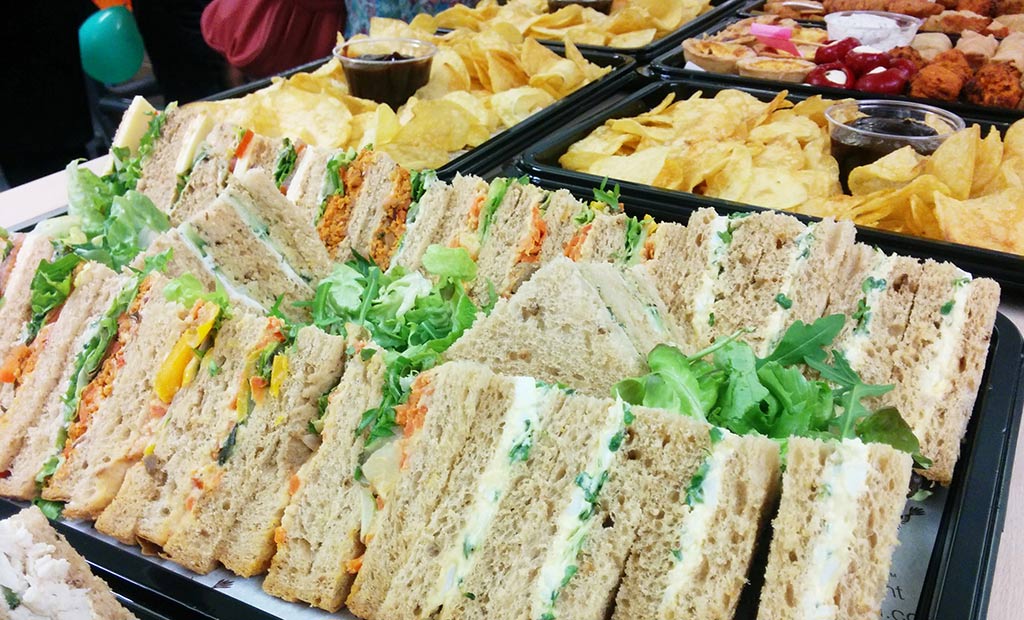Worried about pupils with food allergies? Want advice on transporting and reheating food for your International Evening? We put these and other frequently asked questions to the team at the Food Standards Agency.
We hold several events for adults each year, serving a hot meal. Do we need to have a food hygiene certificate?
The detailed food hygiene legislation only applies if the food handling operation is a regular organised event. Decisions on whether they should apply are made on a case-by-case basis by local authorities, and the FSA recommends that you contact the environmental health department within your Local Authority to confirm how any legislation might apply. Where events are considered to be occasional, as may be the case for PTAs, they remain subject to the general food safety rules. These require all food served to be safe, regardless of whether they’re for profit or not.
NOTE: PTA+ has had several queries from schools receiving conflicting advice from local authorities, with requirements varying considerably. Where a food hygiene certificate is required, you may want to consider sending volunteers for training. To find out more about courses awarded by the Chartered Institute of Environmental Health (CIEH), click here.
We run a cake stall at our fairs with home-made treats donated by parents. Is our PTA liable for any illnesses resulting from something eaten?
Anyone supplying food in such circumstances is legally responsible for ensuring that the food they supply is safe. It’s important that you take care to follow the hygiene advice available on the NHS Choices website. Your Local Authority can also provide advice. If someone were to fall ill as a result of eating food that you’ve sold, your local authority might investigate to determine the cause.
Do we need to wear gloves to serve cakes and should we have one person serving, and another handling money?
Gloves can help with good food hygiene practice, but they’re not a substitute for thorough hand-washing. Ideally it would be good food hygiene practice to have a separate person handling money and serving the food, but this is not always possible. Instead it’s important for food handlers to wash their hands or change gloves regularly. Also tongs can help to minimise direct contact between hands and food.
We have a few pupils with food allergies, should we ban products such as nuts completely or simply make sure that any items offered are labelled?
Some schools have chosen to ban foods which pupils are allergic to at such events. However, people can be allergic to a wide range of food. Another approach would be to provide clear labelling so that parents, teachers and children can make informed choices and avoid foods which could cause an allergic reaction. Also minimising cross-contamination from other foods will need to be managed to reduce the risk of accidental exposure to food allergens.
Schools should have an allergy management plan in place for children with a food allergy (especially of primary school age), to ensure that staff are trained and aware of the likely impact. The plan will cover what is provided for meals, classes and how to recognise an allergic reaction and what actions are required.
Should we buy fresh or frozen burgers for our BBQ?
In terms of food safety, choosing between fresh or frozen burgers makes little difference. As long as the frozen burgers are defrosted properly before cooking, and they are cooked thoroughly (until steaming hot in the middle with no pink meat left), then it really comes down to personal choice. Some frozen burgers come with instructions to cook from frozen, in which case the manufacturer should have ensured that the cooking times provided are suitable to ensure a safe final product. In the absence of any instructions, or if in doubt, defrost carefully in the fridge overnight and use the burgers within two days.
If using fresh burgers, make sure that they are used by their use by date. The FSA recommends they should still be cooked until steaming hot in the middle with no pink meat left.
We’re having a buffet at our next event. How long can we leave this out at room temperature for?
For occasional events, there aren’t any regulations that specify a maximum time that food can be left out. However, in the interests of safety, you shouldn’t keep food out for longer than four hours. Warm food shouldn’t be left cooling down for more than two hours. Any remaining food should be put back in the fridge or thrown away. If you have kept leftovers in the fridge, don’t let them stand around at room temperature when you serve them again.
We’re planning to hold an international evening, with families of different nationalities bringing a dish from their country. Do guidelines exist for preparing, transporting and reheating food, and for keeping it warm?
The FSA advice for preparing food safely in the home is based around the ‘Four Cs.’ That’s ‘Cooking’ your food thoroughly, ‘Chilling’ it properly, ‘Cleaning’ kitchen surfaces and utensils, and avoiding ‘Cross-contamination’ between foods. There are some general guidelines on the NHS Choices website.
When transporting food, obviously make sure you use clean containers and equipment. If reheating food then do so thoroughly, making sure it reaches a temperature of 70°C for two minutes, or equivalent, so that it is steaming hot throughout. If you need to keep food hot for some time before serving, you should cook it thoroughly, until steaming hot, then keep it at a temperature of 63°C or above.
For more information
have a look at the ‘Cooking Section’ of the Safer Food, Better Business (SFBB) pack (caterers). This has been developed by the FSA to help small businesses, however the advice on good hygiene practice may also be relevant for PTAs. Go to food.gov.uk and search under SFBB.
The above is intended as guidance only. We recommend that you contact the relevant organisations with specific reference to insurance, legal, health and safety and child protection requirements. Community Inspired Ltd cannot be held responsible for any decisions or actions taken by a PTA, based on the guidance provided.


.gif)






